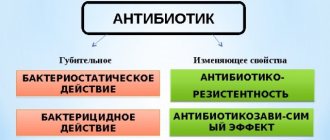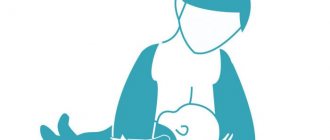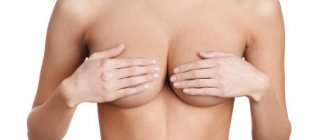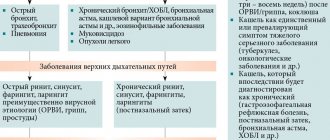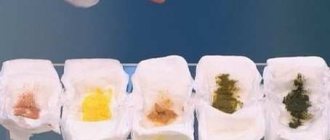Baby in arms: Pixabay Constipation after childbirth is observed in a third of women. Most of them are faced with this, although not dangerous , but still unpleasant problem in the prenatal period. After the baby is born , it often occurs again , causing discomfort, disrupting well-being and mood. about how to normalize intestinal function and how to get rid of constipation in the article.
Attention! The material is for informational purposes only. You should not resort to the treatment methods described herein without first consulting your doctor.
Why does constipation occur after childbirth?
Constipation (aka constipation) most often occurs in nursing mothers, since their diet is poorer than that of women who prefer artificial feeding. There are often cases when postpartum stool is accompanied not only by painful sensations, but also by bowel movements with blood. This is due to both psychological and physiological factors.
The disease can be spastic and atonic in nature. The spastic form occurs due to fear, nervous tension, and stress. For this reason, the muscular wall of the intestine is in good shape, pinching the organ, which subsequently leads to difficulties with the movement of feces. The formation of the second type occurs due to weakening of the muscles of the intestinal walls. In the future, the tone of peristalsis decreases and the movement of feces slows down. Most often, this type of constipation occurs during artificial feeding in those who have had a cesarean section.
Constipation while breastfeeding can be caused by:
- fear of stitches breaking;
- unbalanced diet, resulting from a reluctance to gain excess weight or for fear of harming the child’s body;
- sedentary lifestyle;
- refusing to go to the toilet or holding back for various reasons when the urge arises;
- disease - the most common diseases are hemorrhoids, metabolic disorders in the body, diabetes, spinal cord injuries;
- suggesting that the nursing mother take certain types of medications, such as vitamins, laxatives; if the nursing mother uses any of these medications, problems with stool cannot be avoided;
- hormonal changes;
- enlarged uterus, causing compression of internal organs;
- changes in the usual locations of intestinal loops. Their normal functioning is possible only some time after childbirth;
- muscle wasting;
- the presence of sutures in the genital area.
There are cases in which a new pregnancy can cause constipation during lactation. To exclude or identify it, you will need to visit a gynecologist.
Main symptoms
Difficulty in passing feces is accompanied by a number of side symptoms that bring a lot of inconvenience to a woman:
- The first symptoms are abdominal pain and nausea.
- A headache may occur.
- Irritability and fatigue.
- Lost appetite.
- Absence of stool for several days, the stool is hard and dark.
- The intestines do not empty completely.
During constipation, breast milk loses many nutrients, so the baby remains hungry and food digestion becomes worse.
The baby does not receive the required amount of vitamins and enzymes, so he may begin to have problems similar to those of the mother. Therefore, it is necessary to solve the problem of constipation as soon as possible, but in no case should you self-medicate.
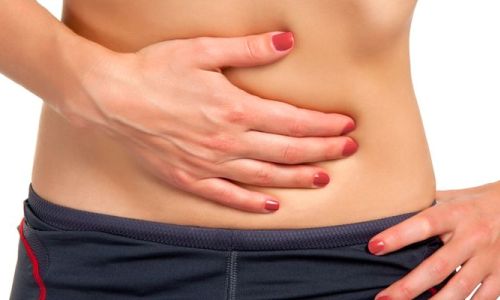
Nutrition for constipation
Nutrition plays an important role in the formation and elimination of constipation. Depending on what a young mother eats, the risk of problems with stool increases.

To normalize intestinal function, you should exclude foods that cause constipation from your diet:
- Black tea;
- some types of cheese;
- rice;
- semolina;
- quince, currant, blueberry;
- Walnut.
An effective method to get rid of constipation is to eat the following foods:
- kefir;
- oatmeal porridge;
- wholemeal bread;
- steamed vegetables;
- bran.
Do not neglect compliance with a special drinking regime, which includes:
- drinking clean water in large quantities;
- consumption of compotes cooked with dried fruits;
- preparing gooseberry decoctions. You should drink this drink as often as possible, as it allows you to eliminate constipation during breastfeeding the very next day;
- drinking a glass of water immediately after waking up;
- exclusion of carbonated drinks and whole milk from the diet;
- consumption of fermented milk products.
How to restore bowel function with diet and exercise
To restore intestinal function with diet, you need:
- drink at least 2 liters of fluid per day;
- consume 300-400 grams of vegetables and fruits;
- avoid foods that bind stool;
- eat well and regularly;
- do not overeat and do not limit yourself;
- avoid flour, spicy, smoked, fried foods;
- consume fermented milk products;
- do not drink strong drinks – tea, coffee, alcohol;
- At the first sign of constipation, adjust your diet with laxative foods.
You can also perform simple and effective exercises. They tone muscles, eliminate the feeling of heaviness and improve blood circulation. The most common sets of movements are:
- lie on your back, raise your legs and bend them one by one, imitating riding a bicycle;
- in a lying position, pull your legs to your chest one by one;
- pull your legs bent at the knees towards your stomach;
- stand, put your hands on your belt and bend in each direction 10-15 times;
- in a standing position, rotate the body in different directions.
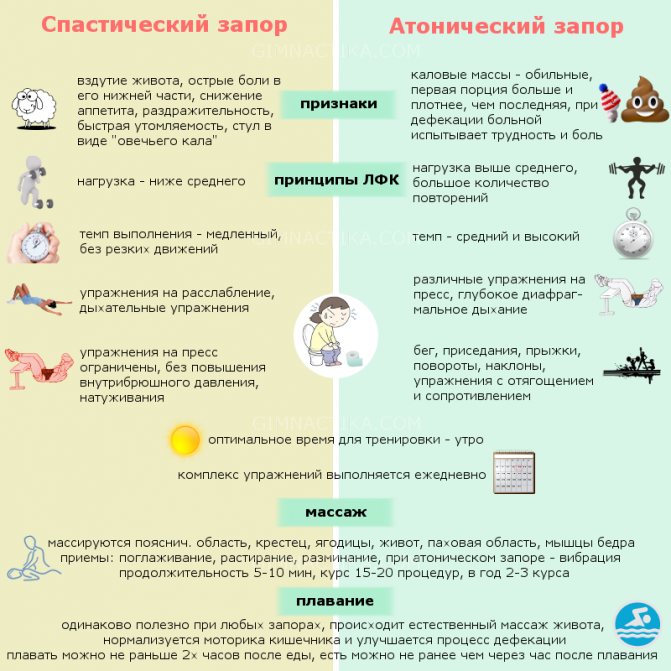
Walking at a moderate pace is useful to restore intestinal tone. As well as swimming and water aerobics classes. Abdominal exercises should be done after motor skills have been restored.
Treatment of constipation after childbirth
Constipation during breastfeeding can be treated both with the help of special medications and with the help of traditional medicine. Experts recommend not to get carried away with a large number of laxative medications, as this can cause the disease to progress to the chronic stage.
Treatment of constipation during breastfeeding in a mother is as follows:
- The use of drugs that contain lactulose. This product is not absorbed or digested by the digestive system, so it is safe for nursing mothers. The main function of lactulose is to soften stool. The most famous drugs: Duphalac, Normaze, Poly. When they enter the large intestine, they exhibit a relaxing effect without affecting peristalsis. There is an increase in fecal mass, as a result of which natural bowel movement occurs.
- Reception of Transiner and Forteza. These medicines consist of macrolog and are produced in the form of a powder for diluting a suspension. Treatment with this method cannot cause any harm to the body.
- In the absence of hemorrhoids, the use of rectal suppositories is allowed. Most often, suppositories based on sea buckthorn oil are prescribed for the treatment of constipation during lactation, as they not only have a laxative effect, but also prevent the development of hemorrhoids.
To cure constipation during mixed feeding, you should resort to a water enema. Under the influence of water, feces soften and are then excreted from the body. Complete bowel movement is possible within 10 minutes after use. An oil enema can eliminate constipation in a nursing mother only after 10 hours; it is best used at night.

Treatment with folk remedies
Treatment of bowel problems with traditional medicine is considered more effective than drug therapy. But it is worth remembering that any herbal decoction has a different effect on the body of all nursing women. For this reason, in some cases, constipation in a nursing mother may worsen.
Spastic constipation can be eliminated using the following methods:
- Pour boiling water over a dozen figs and let the broth cool. Use 1 tablespoon as often as possible;
- Grind the raw potatoes in a blender, extract the juice, add a small amount of boiled liquid to it. Take a glass every day half an hour before meals three times a day.
For atonic form, it is recommended to mix fennel, anise and caraway fruits in equal portions. Then pour 2 small spoons of the resulting mixture into a glass of boiling water, wait 15 minutes, strain and drink a glass half an hour before meals.
The use of these methods is possible only after consultation with a specialist. Only in this case will there be no risk of harm to both women’s and children’s bodies.
Reviews
Marina, 24 years old
Immediately after giving birth, I was faced with such a delicate problem as constipation. At first I thought it was all due to diet. But I had postpartum stitches, so I went to the toilet very rarely, I was afraid that they would rip. For treatment, I was looking for remedies that could be combined with breastfeeding. Therefore, I took Duphalac, which helped me quickly cope with constipation.
Aurora, 34 years old
After the birth of the child, I moved little, so I was not at all surprised when problems with stool arose. At first I used glycerin suppositories for constipation, then I tried Forteza. The result was not long in coming. The constipation passed, and there were no more problems with bowel movements.
During lactation, take medications for constipation only after consulting a doctor. Since self-medication can further worsen the condition of the body of the mother and child.
- Related Posts
- Home birth
- Infectious childbirth
- Is it possible to eat pomelo while breastfeeding?
« Previous entry
Rosehip during pregnancy
Discussion: 2 comments
- Margarita:
14.11.2019 at 14:41After giving birth, I just encountered constipation. An unpleasant thing, of course. But what can you do, the body changes and rebuilds. The doctor told me that Slabicap is a good laxative that can be taken on guards. I took it when necessary. It doesn’t work immediately, only after half a day, but I didn’t have any side effects from it, everything went smoothly.
Answer
- Faith:
03/16/2020 at 18:26
Postpartum constipation is not surprising. Weak muscle tone, increased stress and a changed diet under breastfeeding are unlikely to affect the functioning of the gastrointestinal tract.
Answer
Useful video
Watch this video about a set of exercises for constipation:
Similar articles
- What can you eat after a cesarean section, after how long...
What do doctors say about what you can eat after a cesarean section. What foods can be included in a mother’s diet: bananas, apples, nuts, cookies, chocolate. Is it possible to drink tea? How long after you can eat, how to prepare dishes correctly. What should be the diet after cesarean section? Read more - When milk comes in after cesarean section, what affects if...
What affects when milk comes in after a cesarean section? On what day does colostrum arrive? What to do if there is no milk after cesarean section. Why milk disappears, how to preserve it for long-term feeding. How to pump correctly so that lactation begins. Read more
- Suture after caesarean section: what happens, how to treat...
What are the sutures after a caesarean section - vertical, longitudinal transverse, their features, what they look like, which one is better. How long does it take for a suture to heal after a cesarean section, how to properly treat it and what to apply. Possible complications with the suture: inflamed, festered, itchy, hard, split. How long does it take for a seam to heal, how to remove it. Read more
- How to remove belly fat after cesarean section: home methods...
The main ways to remove the belly after a caesarean section, if it is large. How long does it take to recover, is it possible to lie on your stomach. How to get rid of and lose weight with a roller, wraps, vacuum. Popular abdominal surgeries after caesarean section. Read more
- Exercises after cesarean section: when and how long after...
What exercises can you do after a cesarean section, and how long before you start training. What physical exercises can you do for the first time after weight loss surgery? What is suitable - jump rope, horizontal bar, gymnastics, exercise therapy, Kegel. Read more

